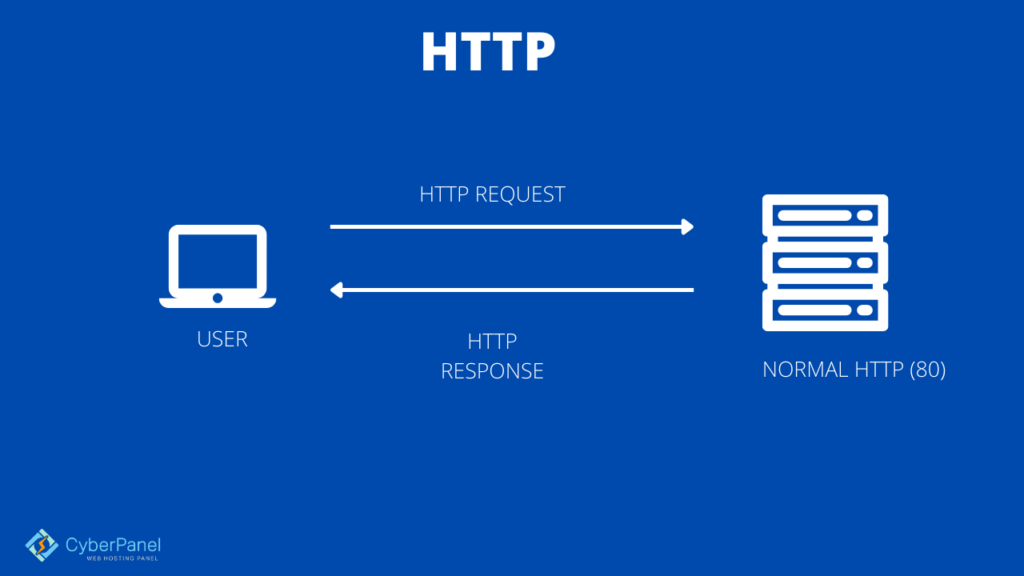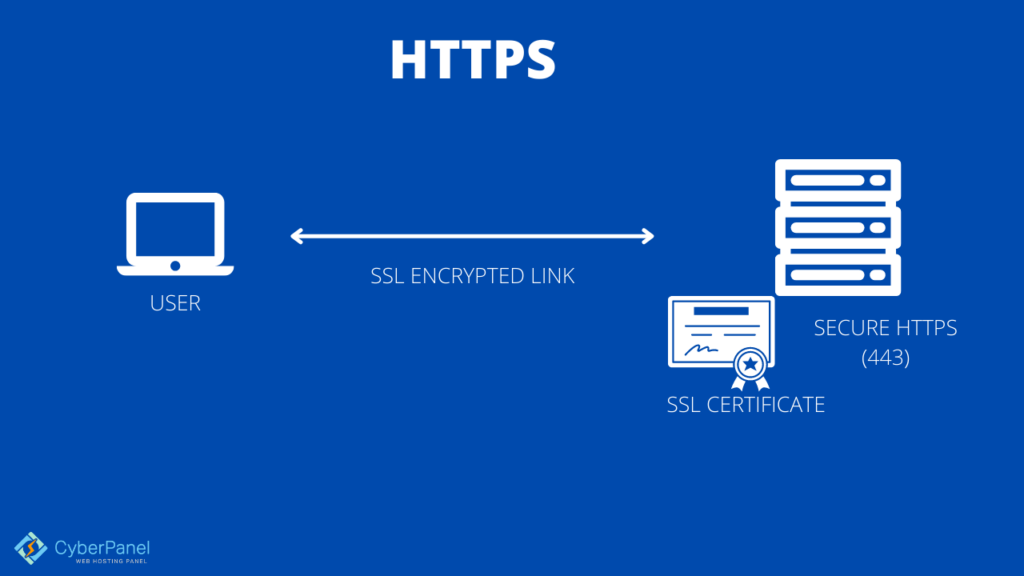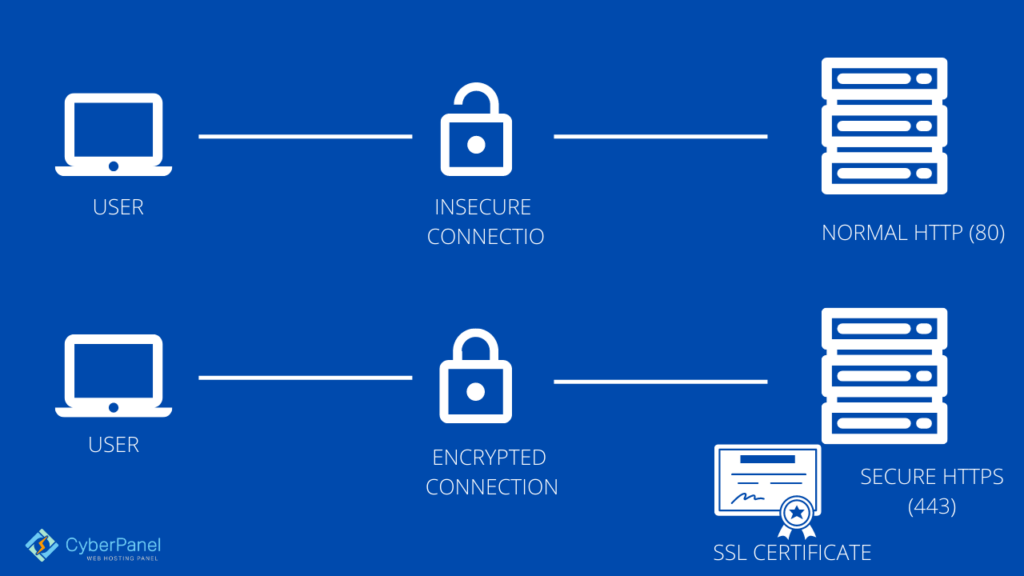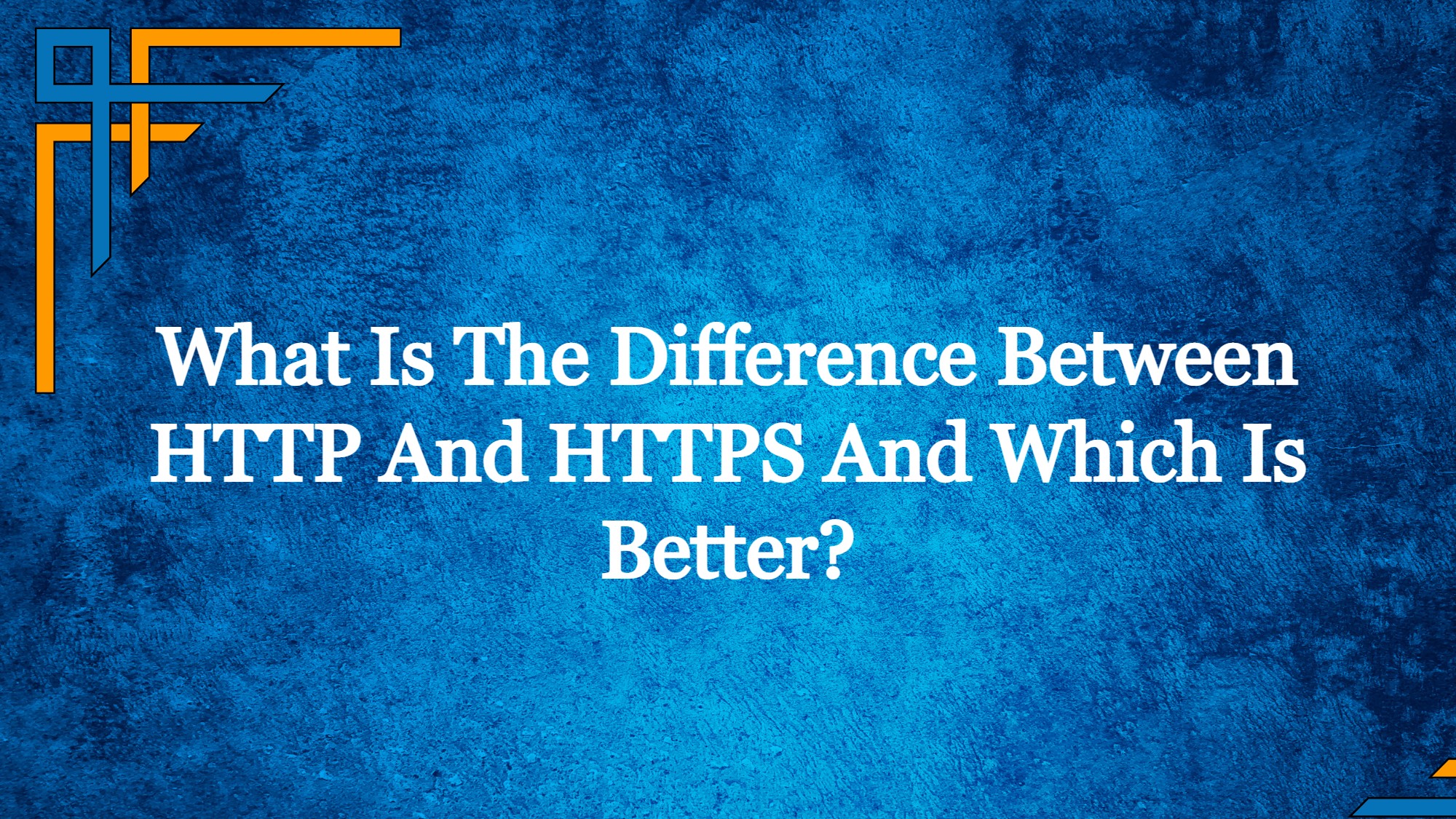When we talk about the difference between http and https, there are a lot of things to consider first. So let us check both in detail. HTTP (or, http://) and HTTPS (https://) are both possibilities for the start of a URL, displaying a crucial distinction in all those website pages you visit on a daily basis, yet casual users rarely notice them.
HTTPS is a secure version of the Hypertext Transfer Protocol (HTTP), the application protocol that underpins all web data transfer. HTTP is a protocol that allows users to retrieve web pages. HTTPS, or HTTP Secure, accomplishes the same goal but in a more secure way. By emphasizing secure search, HTTPS ensures that unauthorized individuals cannot obtain information they are not intended to have.
What is HTTP?
HTTP stands for Hypertext Transfer Protocol in its full form. HTTP is a set of standards and rules that regulate how information can be sent across the Internet. HTTP establishes communication standards for web browsers and servers.

HTTP is a network protocol that runs on top of TCP at the application layer. HTTP employs hypertext organized text to create a logical link among text-containing nodes. It’s also known as the “stateless protocol” since each command is conducted separately, without using the last run command as a basis.
What is HTTPS?
Hyper Text Transfer Protocol Secure is the acronym for Hyper Text Transfer Protocol Secure. It is a highly efficient and sophisticated HTTP version. For data communication, it uses port 443. By encrypting all communication using SSL, it provides for secure transactions. It’s a hybrid of the SSL/TLS and HTTP protocols. It allows a network server to be identified in an encrypted and safe manner.

HTTP also enables the server and browser to establish a secure encrypted connection. It provides data security in both directions. This assists you in preventing the theft of potentially sensitive information.
Get exclusive access to all things tech-savvy, and be the first to receive
the latest updates directly in your inbox.
SSL sessions are mediated using a key-based encryption method in the HTTPS protocol. The strength of this key is usually 40 or 128 bits.
Difference between HTTP and HTTPS
HTTP and HTTPS are two protocols that allow web users send and receive data over the Internet.
HTTPS, with its secure data transfer, is especially crucial for sites that send sensitive data, such as ecommerce sites where consumers submit payment information such as billing addresses, phone numbers, and credit card details. HTTPS uses the Transport Layer Security (TLS) protocol, which was previously known as Secure Sockets Layer (SSL), to improve security, prevent data from being altered or corrupted during transmission, and authenticate select individuals to exchange with the website.
In essence, HTTPS secures data exchanges between a user and a website server by producing short-term session keys, or encryption codes. A certificate authority must certify these security keys.

HTTPS was designed with ecommerce transactions, emails, and other critical data transfers in mind. It is now the industry standard for all websites, has been recognized by Google, and is required for many sophisticated features such as dynamic web apps.
Advantages of HTTP
- HTTP can be used on the Internet or in other networks using other protocols.
- HTTP pages are cached on computers and the internet, making them easily available.
- Platform agnostic, allowing for cross-platform porting.
- There is no requirement for Runtime support.
- Firewalls are not an issue! It is feasible to develop global apps.
- There is no network overhead to establish and operate session state and data because it is not connection oriented.
Advantages of HTTPS
- In most circumstances, HTTPS-enabled sites will have a redirect set up. As a result, even if you enter HTTP://, you will be redirected to https over a secure connection.
- Users can conduct safe e-commerce transactions, such as online banking, with it.
- SSL technology secures and promotes confidence among all users.
- The identification of the certificate owner is verified by an impartial body. As a result, each SSL Certificate includes unique, verifiable data about the certificate owner.
Limitations of HTTP
- There really is no confidentiality because content can be viewed by anybody.
- Because the information can be changed, data integrity is a major concern. Because no encryption mechanisms are utilized, the HTTP protocol is vulnerable.
- It’s unclear who you’re referring to. The username and password can be obtained by intercepting the request.
Limitations of HTTPS
The HTTPS protocol doesn’t prevent confidential information from being stolen from cached sites in the browser.
The HTTPS protocol doesn’t prevent confidential information from being stolen from cached sites in the browser. As a result, it is unable to clear the text from the browser’s memory.
HTTPS has the potential to increase the organization’s computational and network overhead.
Which is Safer? HTTP or HTTPS?
When comparing the main differences between HTTP and HTTPS, HTTPS clearly has the upper hand. Wouldn’t you want your website to be as safe as possible? The point is, if you don’t have an e-commerce page and don’t receive sensitive data from your site’s visitors, you might think that upgrading to an HTTPS site isn’t essential and is more trouble than it’s worth.
HTTPS should be used by every website that interacts with classified data. HTTPS, on the other hand, can benefit even websites that do not handle sensitive data.
The security advantage, however, isn’t the sole one of adopting HTTPS. In fact, upgrading to HTTPS can help you improve your SEO efforts.
Conclusion
HTTPS has numerous advantages in terms of performance and, most importantly, security. All browsers strongly advise users to only trust websites that utilize HTTPS because it is the only way to protect themselves from a number of dangers and assaults.

In case of any help with migration of HTTP to HTTPS CyberPanel support team is always there to help



